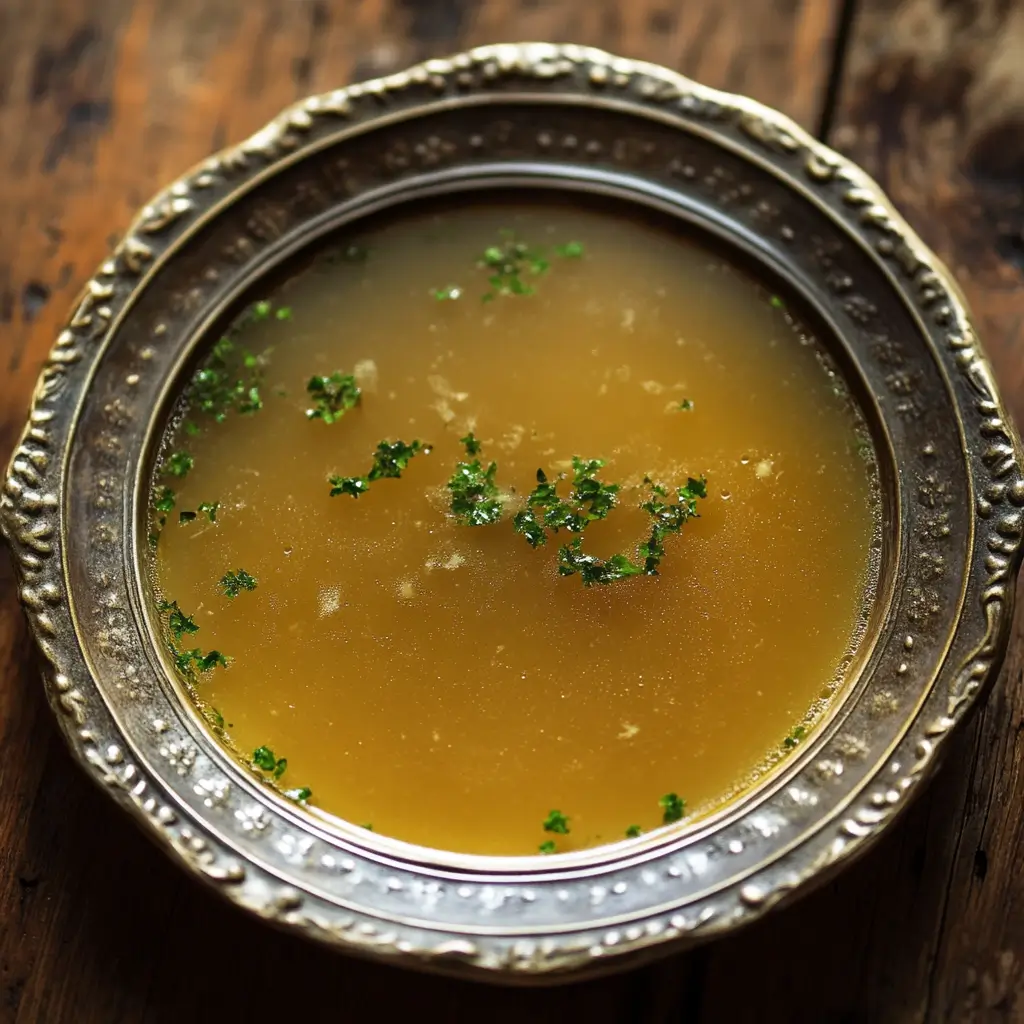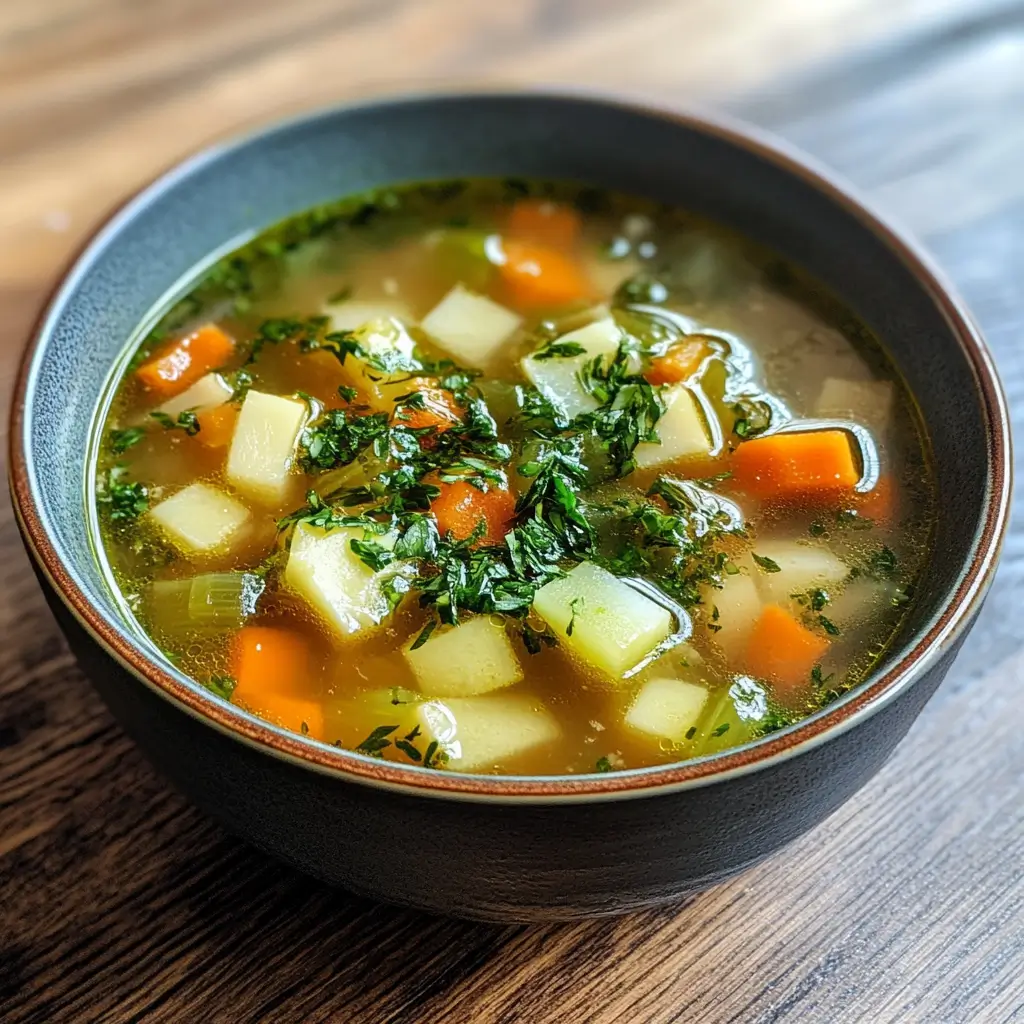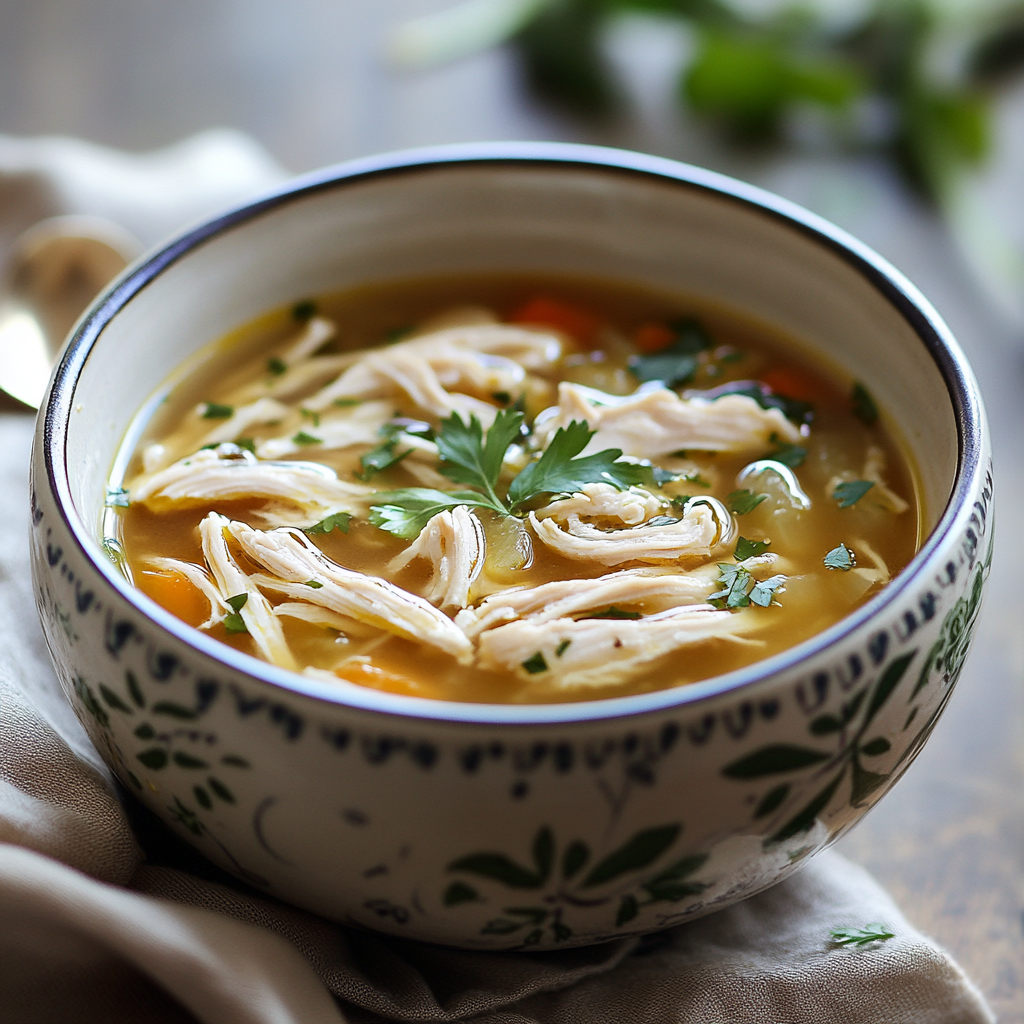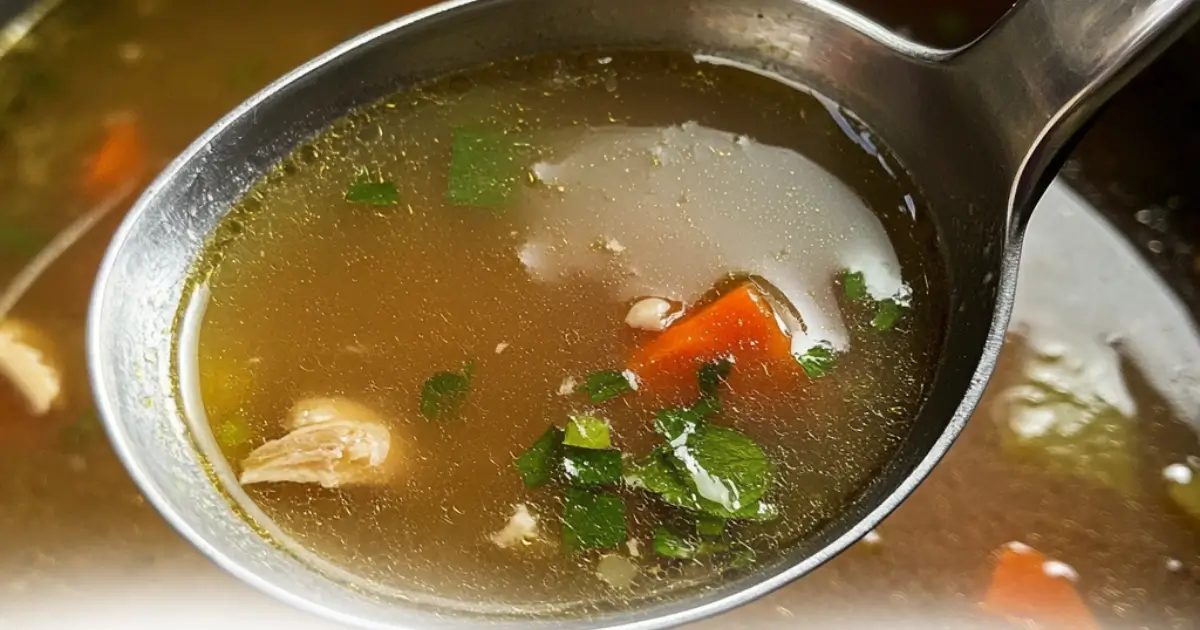Have you ever wondered why there is vinegar into soup made with chicken? This tiny addition holds the key to improving flavors as well as unlocking nutrients and even improving the health benefits. From making the perfect soup to making chicken more tender, the role of vinegar in soups made from chicken goes beyond its tangy flavour. This article will go into everything you need learn about vinegar’s role in soups made from chicken and its scientific basis advantages, culinary uses, and useful tips for getting the perfect flavor. Let’s find out why this basic ingredient in the pantry is a staple in kitchens for many generations.Table of contents
Table of contents
Introduction to Vinegar in Chicken Soup
The Historical Use of Vinegar in Cooking
Vinegar has been a staple of cooking for many centuries. The ancient civilizations such as that of Greeks and Romans utilized it for its preservation properties and capability to enhance flavor. In traditional soups and broths vinegar was not just about taste, it was about the practicality. Through its aid in the breakdown of tough ingredients such as cartilage and bones vinegar was instrumental in creating nutritious and nutritious stocks that could support families through difficult times.
The tradition of this time continues. Vinegar remains a popular choice by home cooks and chefs for its ability to take soups to a new level. Vinegar in chicken soup might seem like a trivial move, but it’s actually a tribute to a tradition of cooking that has been through the ages.
Overview: Why Vinegar Enhances Soups
Why vinegar is a game-changer in soups made from chicken? The reason lies in its distinctive qualities. Vinegar’s acidic nature degrades proteins in chicken and releases flavor and nutrients into the broth. This process does not just enhance the flavor of the soup but also provides it with an extremely smooth smooth texture.

In addition, vinegar is an effective flavor balancer, helping to cut through the heavyness of rich ingredients while bringing all the components together. It doesn’t matter if you’re using apple-cider vinegar or white vinegar or rice vinegar. Each has its own unique flavor which makes the soup of your chicken more robust, delicious and incredibly satisfying.
The Science Behind Vinegar’s Effects in Chicken Soup
How Vinegar Affects Protein Breakdown
A single of the intriguing aspects of the addition of vinegar to soup made from chicken is the way in which the vinegar interacts with protein. If you cook chicken in vinegar, it’s because the acidic characteristics of vinegar start to dissolve proteins from the bones and meat. The process releases collagen as well as gelatin, which gives the soup a more supple consistency and body. It’s not just about flavor. These ingredients help to create the mouthfeel soup that is rich and full of flavor.

Furthermore, this breakdown can help make the chicken more tender, which makes it more tender and easier to cut into pieces. If you’ve ever wondered why it’s important to vinegar is used in soups for chicken is because this easy process transforms your soup from ordinary to exceptional by improving the texture and the nutrient content of the soup.
Vinegar’s Role in Nutrient Extraction
Apart from enhancing protein levels in the body, vinegar plays a crucial function in removing mineral compounds from bone. The acidity in vinegar assists to dissolve magnesium, calcium and phosphorus, enhancing the soup with these essential nutrients. In the end, a bowl of chicken soup that is made using vinegar goes beyond comfort food, it’s an energy source.
With just a little drop of vinegar you can ensure that your soup gets the most minerals and vitamins derived from the food ingredients. It’s a trick that is practical as well as health-conscious.
Acidity and Flavor Balancing in Broth
Vinegar is also a flavor enhancer. Its tartness cuts through the fat in chicken soup, creating a balanced taste that’s neither too rich nor too bland. The acidity wakes up your taste buds, allowing the subtle flavors of herbs, vegetables, and chicken to shine.
Interestingly, different types of vinegar—like apple cider or white vinegar—bring unique flavor profiles. While apple cider vinegar adds a slight fruity tang, white vinegar offers a sharper kick. Both are excellent choices for achieving a perfect balance in your soup.
Culinary Benefits of Adding Vinegar
Improving the Soup’s Texture and Body
The texture of your soup can make or break the dish, and vinegar is a secret weapon for achieving that perfect mouthfeel. When added during cooking, vinegar works its magic on the chicken bones, releasing gelatin and creating a broth that’s silky, smooth, and satisfying. This gelatin not only thickens the soup naturally but also gives it a comforting richness.

If you’ve ever been amazed by the velvety texture of homemade soups, vinegar is often the unsung hero behind the scenes. It’s no surprise chefs swear by this trick to enhance their creations.
Highlighting and Balancing Flavors
Have you ever tasted a soup that felt like it was missing something? That “something” might just be a splash of vinegar. Vinegar balances flavors by cutting through the heaviness of rich ingredients, like chicken and cream, while highlighting the natural sweetness of vegetables like carrots and onions.
This balance is particularly important in chicken soup, where a delicate harmony of flavors is essential. A well-placed teaspoon of vinegar can elevate your soup from bland to brilliant, ensuring every spoonful is packed with depth and complexity.
Prolonging Shelf Life and Preserving Soup
Another hidden benefit of adding vinegar to chicken soup is its ability to act as a preservative. Thanks to its natural acidity, vinegar helps slow the growth of bacteria, giving your soup a longer shelf life.
For those who like to meal prep or store leftovers, this is a game-changer. With vinegar in the mix, your soup stays fresher for longer, without sacrificing taste or quality. Plus, it’s a simple, natural way to preserve your dish without relying on artificial additives.
Health Benefits of Vinegar in Soup
Enhanced Nutrient Absorption
Adding vinegar to chicken soup isn’t just about flavor; it’s also about improving your body’s ability to absorb nutrients. The acidity in vinegar breaks down the proteins in chicken bones and releases vital minerals like calcium, magnesium, and potassium into the broth. This makes your soup more than a comfort food—it’s a nutritional powerhouse! Regularly including vinegar-infused soups in your diet can support bone health and overall well-being.
Potential Immunity-Boosting Properties
Chicken soup is often touted as a go-to remedy for colds, and vinegar adds another layer of benefits. Vinegar contains acetic acid, which may help inhibit the growth of harmful bacteria. Combined with the immune-boosting properties of chicken and vegetables, a bowl of soup with vinegar can be a great addition to your cold-weather routine.
Moreover, the minerals extracted from the bones support cellular functions, aiding the immune system. This is one of the key reasons people ask, “Why put vinegar in chicken soup?”—it’s a small step with big health benefits.
Gut Health and Digestion Support
Vinegar is known for its probiotic properties, especially raw types like apple cider vinegar. Adding a splash to your chicken soup can aid digestion and promote gut health. The acetic acid in vinegar supports the production of stomach acid, making it easier to break down food. If you’ve been dealing with digestive issues, incorporating vinegar into your meals could provide relief.
For more delicious and nutritious recipes, check out other culinary inspirations on the site!
Types of Vinegar to Use in Chicken Soup
Choosing the Right Vinegar for Your Recipe
When it comes to chicken soup, not all vinegars are created equal. Choosing the right type can transform your soup’s flavor profile. Apple cider vinegar is a popular choice for its mild fruity flavor, which complements chicken and vegetables beautifully. White vinegar, on the other hand, offers a sharper, more neutral acidity that lets the natural flavors of the soup shine.

Each type of vinegar brings its own set of benefits and flavors. Wondering why put vinegar in chicken soup? Experimenting with different kinds will help you discover what works best for your palate.
Popular Options: Apple Cider, White Vinegar, and More
- Apple Cider Vinegar: Packed with nutrients and a slight sweetness, it’s perfect for a more complex broth.
- White Vinegar: Best for those who prefer a clean, straightforward tang.
- Rice Vinegar: For an Asian twist, this mild and slightly sweet vinegar is ideal.
- Balsamic Vinegar: While unconventional, a touch can add depth and a hint of sweetness to certain recipes.
Choosing the right vinegar is about balancing flavors while enhancing the soup’s health benefits. Don’t hesitate to try a new variety next time you’re simmering a pot of chicken soup.
How to Incorporate Vinegar into Chicken Soup
When to Add Vinegar for Optimal Results
Timing is everything when it comes to adding vinegar to chicken soup. To get the best results, add the vinegar early in the cooking process. This allows the acidic properties of vinegar to break down the chicken bones and extract essential nutrients. For those wondering, “Why put vinegar in chicken soup?”, this timing is key to enhancing both flavor and nutrition.
If you’re using apple cider or rice vinegar, about 1–2 tablespoons per pot is usually enough. Adding it during the simmering stage ensures it has time to meld with the other ingredients without overpowering the soup.
Tips for Adjusting the Quantity
When it comes to vinegar, a little goes a long way. Start small—you can always add more later, but it’s hard to fix if you’ve added too much. For a lighter flavor, reduce the quantity, or dilute it with water before adding it to your soup. Taste as you go to achieve the right balance of tang and richness.
Common Mistakes to Avoid
Avoid adding vinegar too late in the cooking process, as it may not integrate well with the broth. Another common mistake is using flavored vinegars that clash with the other ingredients. Stick to mild, versatile options like apple cider vinegar for a harmonious result.
Recipes Featuring Vinegar in Chicken Soup
Traditional Chicken Soup with Apple Cider Vinegar
This recipe highlights the simplicity of traditional chicken soup while showcasing the benefits of adding vinegar. Start by simmering chicken bones, vegetables, and herbs in water. Add 1–2 tablespoons of apple cider vinegar at the beginning to draw out minerals and enhance the broth’s flavor. Finish with a sprinkle of fresh parsley for a comforting, nutrient-packed soup,Mexican Chicken Soup Recipe.
Fusion Recipes Incorporating Vinegar
For an adventurous twist, try incorporating rice vinegar into an Asian-inspired chicken soup. Use ginger, garlic, soy sauce, and sesame oil for a flavorful base, then add a splash of rice vinegar. This subtle acidity complements the bold spices and creates a soup that’s both comforting and exciting.
If you’ve been asking yourself why put vinegar in chicken soup, these recipes show how a simple ingredient can elevate any dish. Experimenting with different recipes and vinegars will help you find your favorite combinations.
Frequently Asked Questions (FAQ)
Why Do Some People Avoid Vinegar in Chicken Soup?
While many embrace vinegar for its flavor and nutritional benefits, some avoid it due to personal taste preferences or dietary restrictions. The tangy flavor can be too strong for those sensitive to acidic foods. However, this can often be balanced by using a smaller amount of vinegar or choosing milder varieties, like rice vinegar. If you’re still wondering, “Why put vinegar in chicken soup?”, it’s worth experimenting to find a balance that works for you.
Can I Substitute Vinegar with Another Ingredient?
Yes, there are alternatives to vinegar if you prefer a different approach. Lemon juice is a popular substitute that offers a fresh, citrusy acidity, while tamarind paste can add a tangy depth. Each substitute brings its own unique twist to the soup. Keep in mind, though, that vinegar’s mineral-extracting ability is hard to match.
How Much Vinegar Should I Use?
The ideal amount depends on the recipe and your taste preferences. A general rule is to start with 1–2 tablespoons per pot of soup. Taste your broth as it simmers and adjust as needed. The goal is to enhance the soup without overwhelming the other flavors.

